During Advance CTE’s 2023 Fall Meeting, four members of the second cohort of the 15-month Postsecondary State Career Technical Education Leaders Fellowship at Advance CTE – Sponsored by ECMC Foundation participated in a panel discussion to share their experiences and knowledge gained from the Fellowship, as well how state Career Technical Education (CTE) leaders can remove barriers for diverse aspiring postsecondary leaders.
Jomarie Coloriano – Inclusive Excellence, Director | Office of Diversity, Equity and Inclusion, Wisconsin
Dr. Crystal Gardner – Program Director | Workforce Instruction, Workforce Research and Development | Houston Community College, Texas
Dr. Angela Lawhorne – Director of Career Education Programs & Workforce Partnerships | Virginia Community College System, Virginia
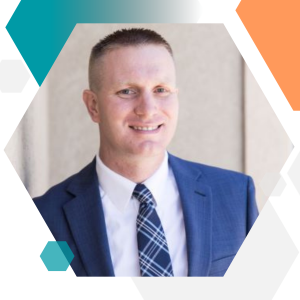
Caleb Perriton – Program Director | Trades and Technical Studies | Laramie County Community College, Wyoming
Fellows shared their reasons for applying to the Fellowship, which ranged from seeking out leadership opportunities to advance at their current institution to being forwarded the application by a colleague or a supervisor who believed and supported their leadership aspirations. A common theme shared by each was the desire to address a specific concern related to policy and processes within postsecondary Career Technical Education (CTE). The application for the Fellowship included a question on future goals and a challenge related to equity and a population of learners applicants wanted to research and develop an intervention for while completing the Fellowship. The Fellows pointed to the intentionality of explicitly requiring applicants to reflect on and consider CTE leadership opportunities and the inclusion of an equity-based real-world project made the decision to apply an easy choice.
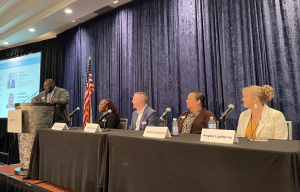 Fellows were also asked to share the key event or events that reinforced their decision to apply to the Fellowship, in other words – when they knew they made the right decision. Dr. Gardner shared that in CTE she rarely has an opportunity to work with or collaborate with other leaders of color across the nation and view the entire landscape of leadership possibilities in postsecondary CTE. The Fellowship offered an opportunity to build a network consisting of her peers, guest speakers invited to the Fellowship workshop and most importantly her coach whom she felt she was perfectly matched with based on their commonalities and interests. She recognized the level of thought the Advance CTE staff dedicated to finding the right mentor for each of the Fellows. Caleb discussed being paired with a postsecondary administrator with an automotive background and how the monthly coaching meetings inspired him to begin seeking the director position he currently holds at his institution.
Fellows were also asked to share the key event or events that reinforced their decision to apply to the Fellowship, in other words – when they knew they made the right decision. Dr. Gardner shared that in CTE she rarely has an opportunity to work with or collaborate with other leaders of color across the nation and view the entire landscape of leadership possibilities in postsecondary CTE. The Fellowship offered an opportunity to build a network consisting of her peers, guest speakers invited to the Fellowship workshop and most importantly her coach whom she felt she was perfectly matched with based on their commonalities and interests. She recognized the level of thought the Advance CTE staff dedicated to finding the right mentor for each of the Fellows. Caleb discussed being paired with a postsecondary administrator with an automotive background and how the monthly coaching meetings inspired him to begin seeking the director position he currently holds at his institution.
Each of the Fellows discussed the impact of their real-world project and the effect of completing the project has had on their current work and aspirations to continue climbing the postsecondary CTE leadership ladder. Dr Lawhorne’s project focused on improving access to justice-involved learners in Virginia and the state’s current efforts to expand, through the community college system, access to high-quality CTE programming. In the process of completing her project, an award of $70,000 was granted to support the project which allowed for the inclusion of other correctional facilities in the intervention strategy being implemented at a few select sites in the state.
As part of Jomarie Coloriano’s project research on providing information on and access to wrap-around services for economically disadvantaged learners in her region of the Wisconsin Technical College System, she conducted a focus group which led to the identification of learner needs. This work led to an advancement to director as she continues to complete her doctoral program and the continuation of her research on increasing the postsecondary outcomes of economically disadvantaged learners. Jomarie shared during the panel discussion, “my mentor has really pushed me as a college student, first generation professional, now a doctoral student and pioneer for my family.”
This panel allowed CTE leaders to see the impact and influence of leadership development programs. Caleb shared with the state leaders that “there’s work that needs to be done in your state, and this Fellowship was the catalyst to complete a project that was needed in my community.” State and local CTE leaders can use Advance CTE’s new Building a Diverse CTE Leadership Pipeline Toolkit, to assess and build leadership development structures in their own institutions. The resource includes an overview of lessons learned from the Fellowship as well as a guidebook and accompanying workbook to assess and build leadership development structures.
Dr. Kevin Johnson, Senior Advisor





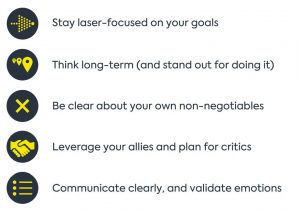
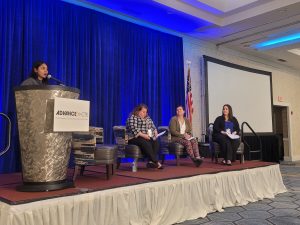 On Friday, May 13, attendees at Advance CTE’s Spring State Leadership Retreat heard from three State CTE Directors participating in Advance CTE’s state cohort to begin implementation of
On Friday, May 13, attendees at Advance CTE’s Spring State Leadership Retreat heard from three State CTE Directors participating in Advance CTE’s state cohort to begin implementation of 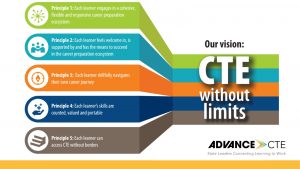 Nebraska’s focus is advancin
Nebraska’s focus is advancin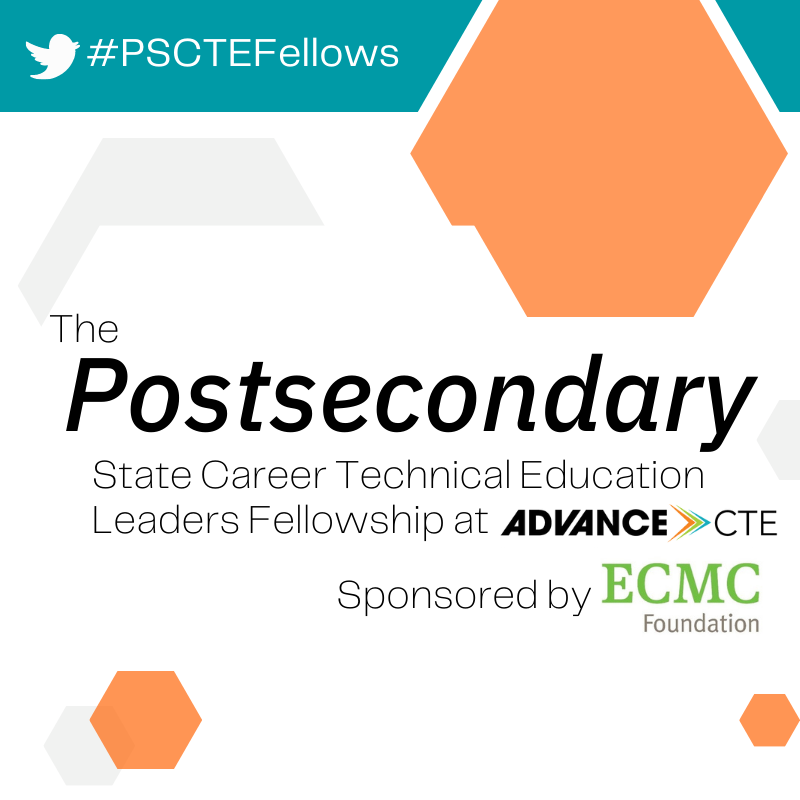 Last week, Advance CTE and ECMC Foundation announced the 15 Fellows joining the inaugural cohort of
Last week, Advance CTE and ECMC Foundation announced the 15 Fellows joining the inaugural cohort of 
 Is this a word you associate your work? How many students do you think characterize their experiences in the classroom as joyful? Yesterday, I had the great fortune of hearing
Is this a word you associate your work? How many students do you think characterize their experiences in the classroom as joyful? Yesterday, I had the great fortune of hearing